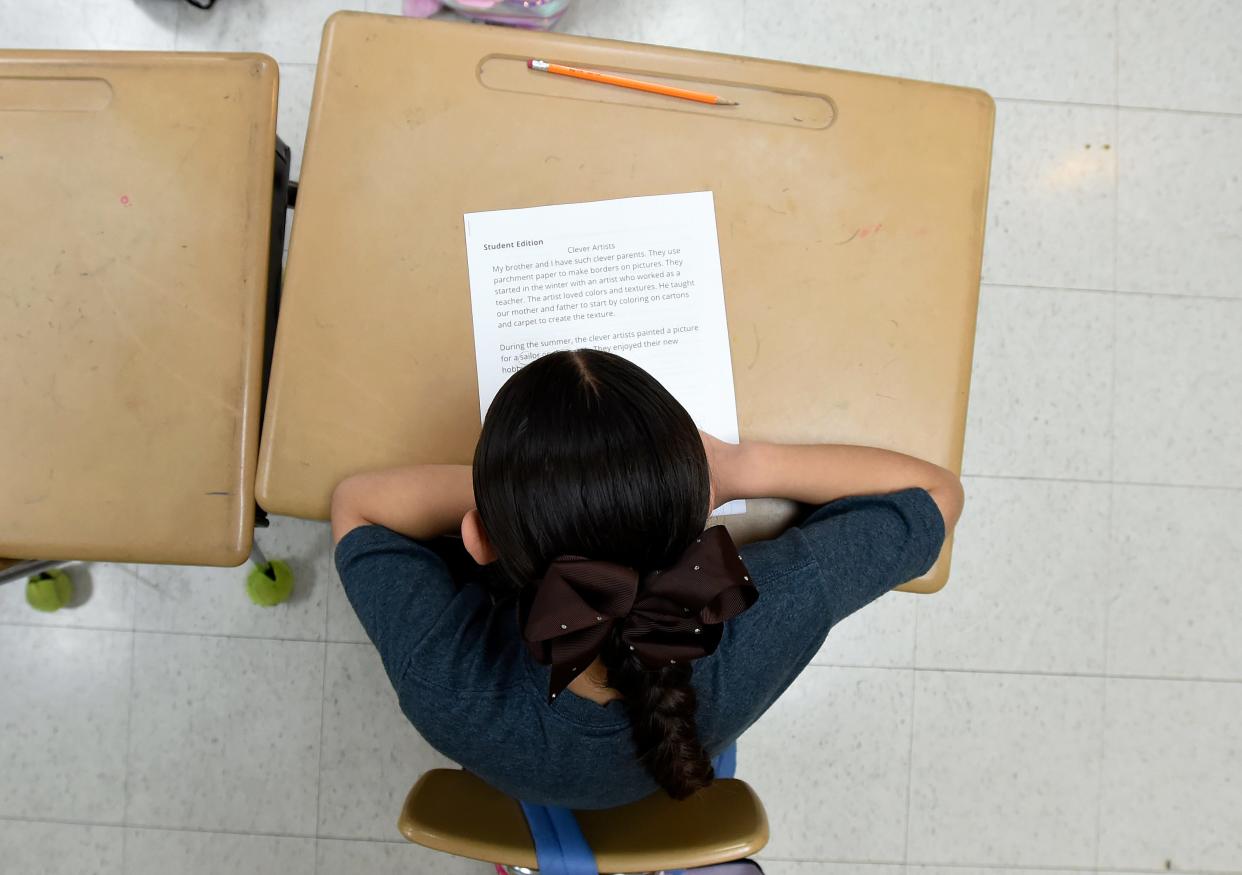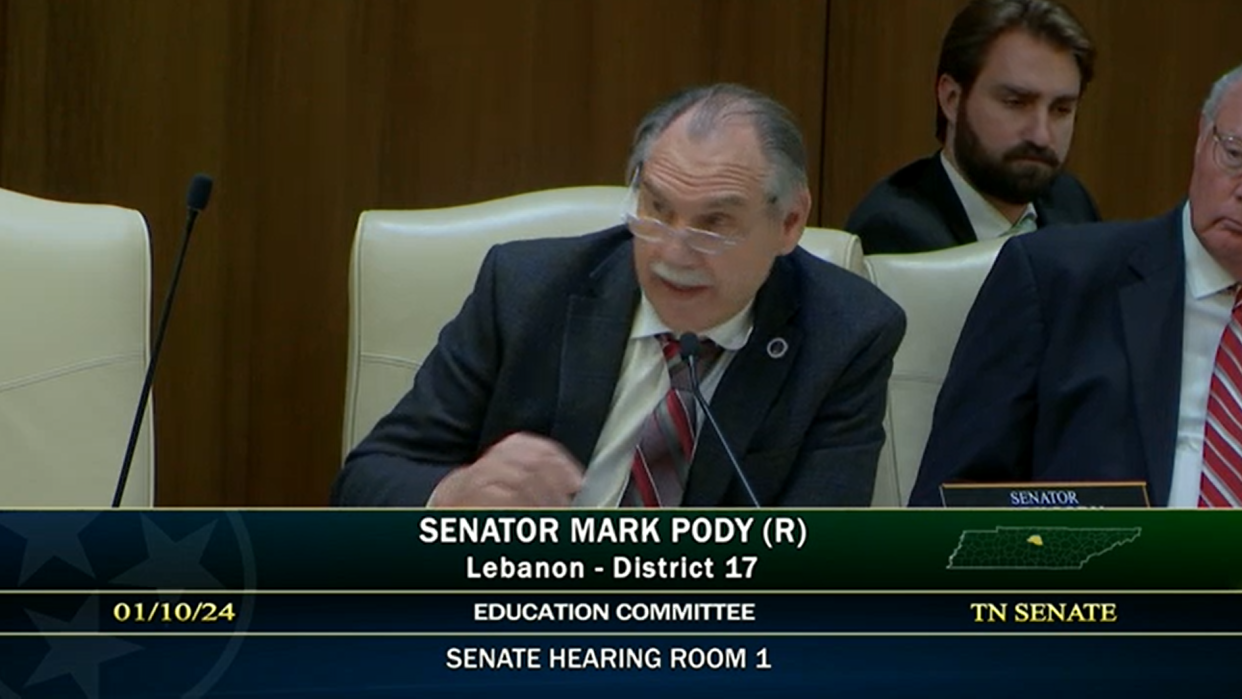Tennessee lawmakers advance bill that would hold back fewer fourth graders under reading law
A bill that would decrease the number of Tennessee fourth graders at risk of being held back under the state's controversial reading law advanced in the state legislature this week.
Last year, roughly 12,000 third graders who fell short of a state reading benchmark opted for state-funded, high-dosage tutoring in fourth grade to avoid being held back. Now, to advance to fifth grade, they must must either pass the English language arts section of the state's standardized test or show "adequate growth," according to the law. The formula for adequate growth includes the student's standardized test score along with the probability they will eventually become proficient in reading. The growth goal is individual to each student.
Learn more: Thousands of Tennessee 4th graders again face retention as lawmakers press for clarity
As things stand, the Tennessee Department of Education projected 5,000-6,000 of those fourth graders will again fall short and be held back. It would mark the second time these students have faced retention in the span of a year. All that has sparked controversy and led to a push from educators and lawmakers alike for clarity and action.
Rep. Gary Hicks, R-Rogersville, proposed a House bill that would provide several options for the fourth graders at risk of retention to move on to fifth grade. It allows districts to consider the results of a locally adopted benchmark test separate from the state's standardized test in their decision. It also allows parents and districts to meet to decide on retention. If the child is ultimately promoted to fifth grade, they must be given interventions and academic supports, like tutoring, for English language arts skills.

The House K-12 Subcommittee advanced the bill Tuesday. On Wednesday, the Senate Education Committee advanced its version of the bill.
However, it was not clear if the Senate version included the additional benchmark test as a consideration. The amended version of the Senate bill was not publicly available as of Wednesday evening.
Lawmakers uncertain on how best to help fourth graders
During the Wednesday committee hearing, Sen. Mark Pody, R-Lebanon, said he was torn over the legislation.
He said he doesn't advocate for children being moved along who are truly not ready for the next grade, but that he also doesn't want to leave parents, students and schools in limbo as the school year comes to an end. The state's standardized Tennessee Comprehensive Assessment Program tests, also known as TNReady, will be administered next month.
Pody has been critical of the shortcomings of the third grade reading law in the past, especially when it comes to the lack of clarity for the fourth graders it now affects.
“We’ve got kids that don’t know where they’re going in two months," Pody said. "That’s shame on us."

He ultimately voted yes on the bill.
Committee chair Jon Lundberg, R-Bristol, voiced a similar concern.
"We set a line years ago, and it’s a tough line," Lundberg said. "I don’t want 6,000 people to fail. I don’t want 3,000. I don’t want 300. But some are going to fail, and moving them along just because these are difficult conversations for parents to have and teachers to have, that’s a problem."
Lundberg ultimately abstained from voting on the measure. All the other members of the committee voted yes.
What's next for the bill
The House version of the bill now heads to the House Education Administration Committee and is set to be heard on March 27. The Senate version of the bill will be heard next by the Senate Finance, Ways and Means Committee. A date for that has not yet been set.
Want to follow along with the bill's progress? Head to capitol.tn.gov and type either SB2183 or HB2326 into the search bar at the top right. That will take you to the bill's page with the latest information on committee hearings, votes and other actions.
Reach children's reporter Rachel Wegner at RAwegner@tennessean.com or follow her on Twitter, Threads and Bluesky @RachelAnnWegner.
This article originally appeared on Nashville Tennessean: Tennessee reading law: Fewer 4th graders would be held back under bill
